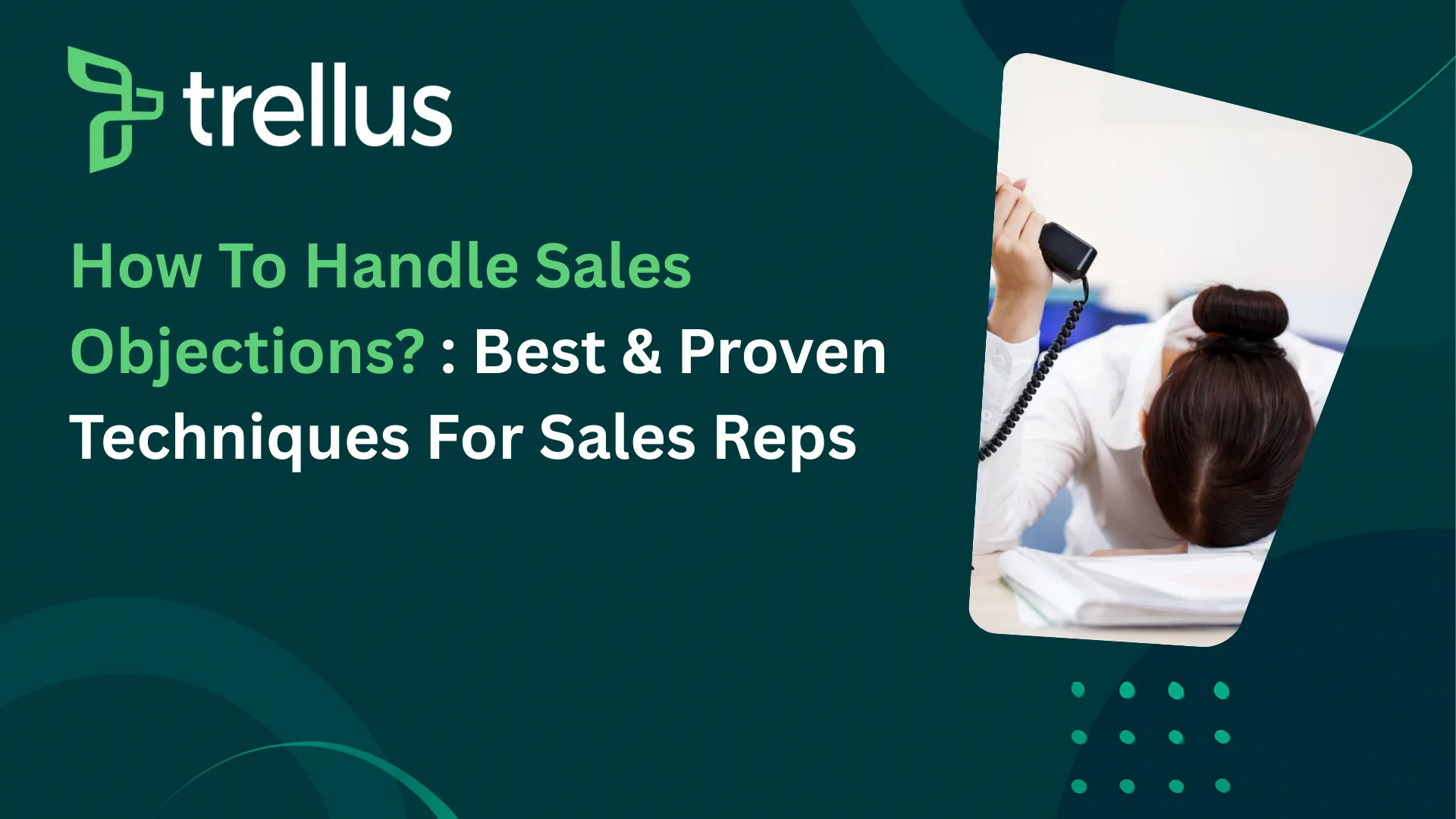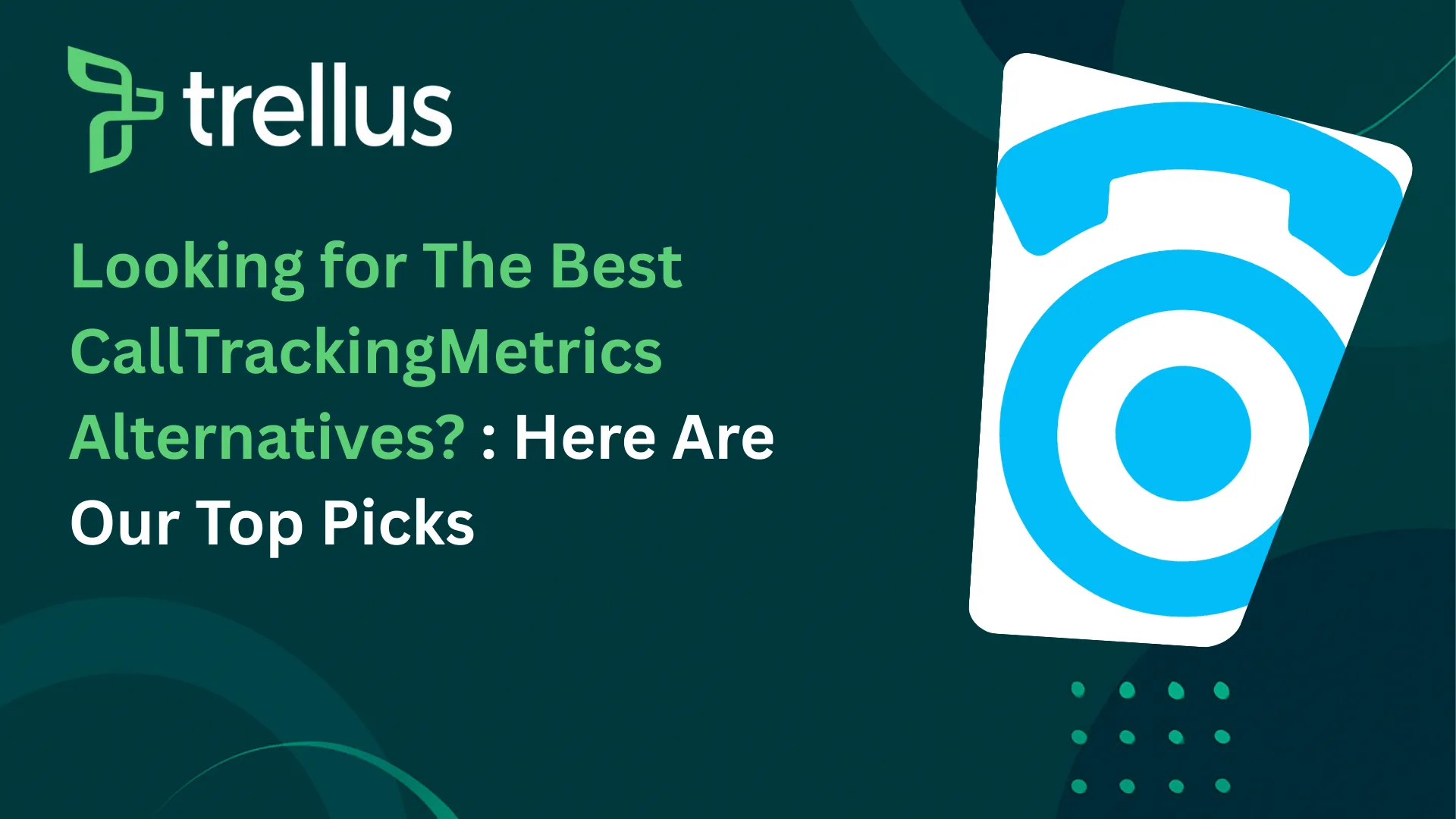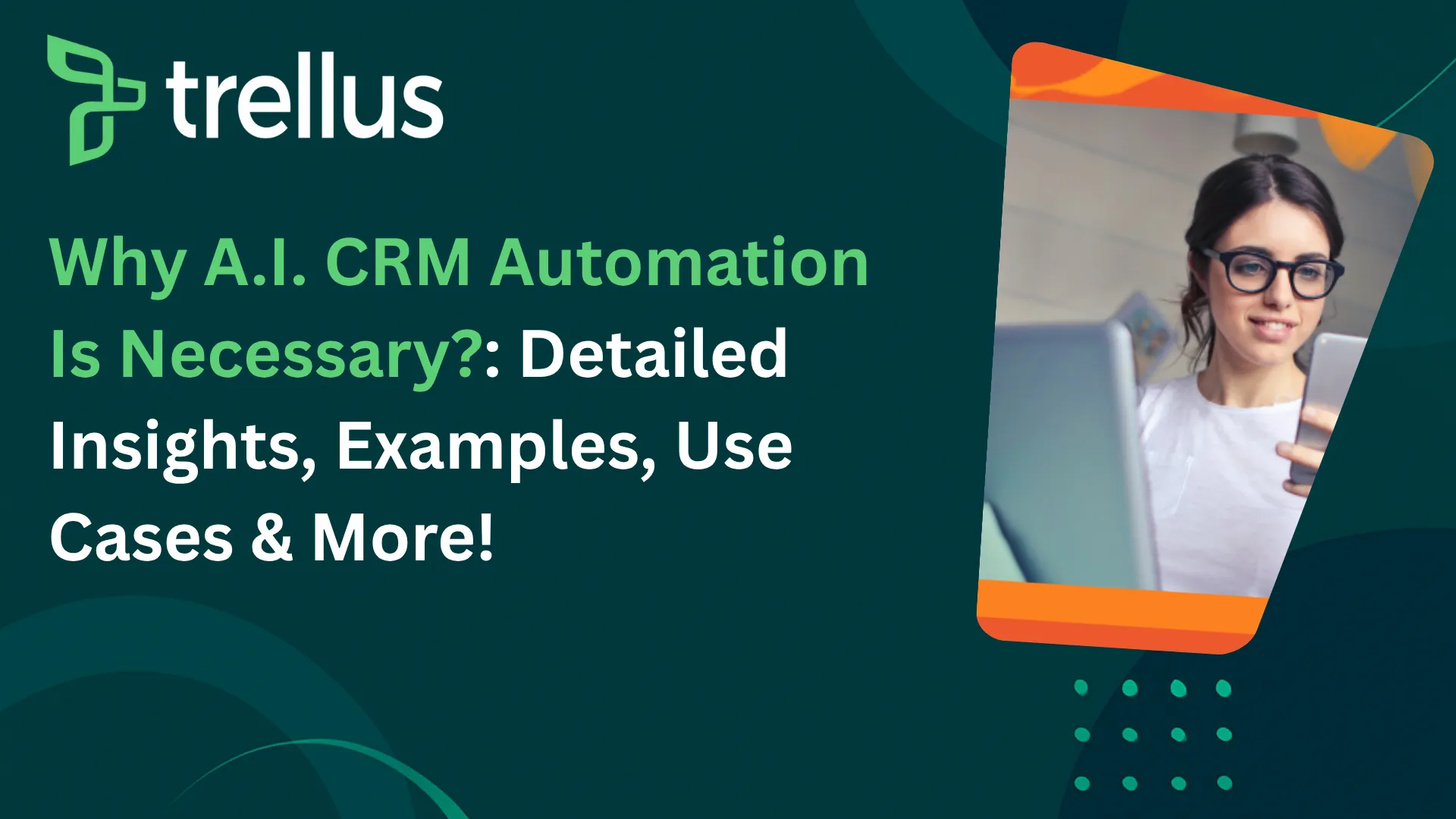
Our Top Picks


Traditional sales approaches often can't keep up with the pace and personalization demands of the modern buyer.
As per this concept, companies that have traditional software that doesn’t go that much in depth as per customer resource management, what their pain points allude to, buyer persona, etc., are less likely to perform in terms of conversions and long term business goal achievements.
On the other hand, businesses, especially those that rely on sales productivity metrics, KPIs, and customers through different types of digital solutions, such as a CRM automation system, a cold calling software, customer management tool, and vice versa, perform much better.
How so?
According to recent research conducted via market survey, platforms with some sort of a robust digital solution have projections showing that 80% of B2B and B2C sales engagements occur through digital channels.
From that point of view, your modern-day businesses can no longer afford to rely on outdated processes. AI-powered CRM automation offers startups the power to streamline sales workflows, accelerate lead conversion, and personalize customer interactions at a scale that manual teams simply can't match.
Having said that, we’ll double down on everything you need to know about such systems, keeping in view the requirements associated with CRM automation ai sales reps.
Read on…
The Shift Toward AI CRM Automation in Sales
Sales teams are rapidly moving toward automated, intelligent systems to meet modern demands. As mentioned earlier in the begginning of this write up, traditional CRMs, although widely used, often become repositories of static data rather than engines that actively support sales teams.
On the contrary, any robust AIO AI-powered CRM automation transforms CRMs into dynamic systems that actually drive pipeline momentum.
This evolution is especially important for startups, where every lead counts, and every hour spent on manual tasks is an opportunity lost. CRM automation with AI sales reps removes the burden of repetitive tasks, freeing sales professionals to focus on meaningful conversations and strategic selling.
Here are some of the most critical outcomes startups are seeing:
- More efficient sales cycles: AI can prioritize high-value leads and suggest the best actions, speeding up the time from first contact to closed deal.
- Higher win rates: With predictive insights and automated outreach, reps are better equipped to respond with the right message at the right time.
- Stronger customer engagement: AI helps tailor every communication based on buyer behavior, ensuring more relevant, impactful interactions.
Core Features That Power AI-Powered CRM Automation
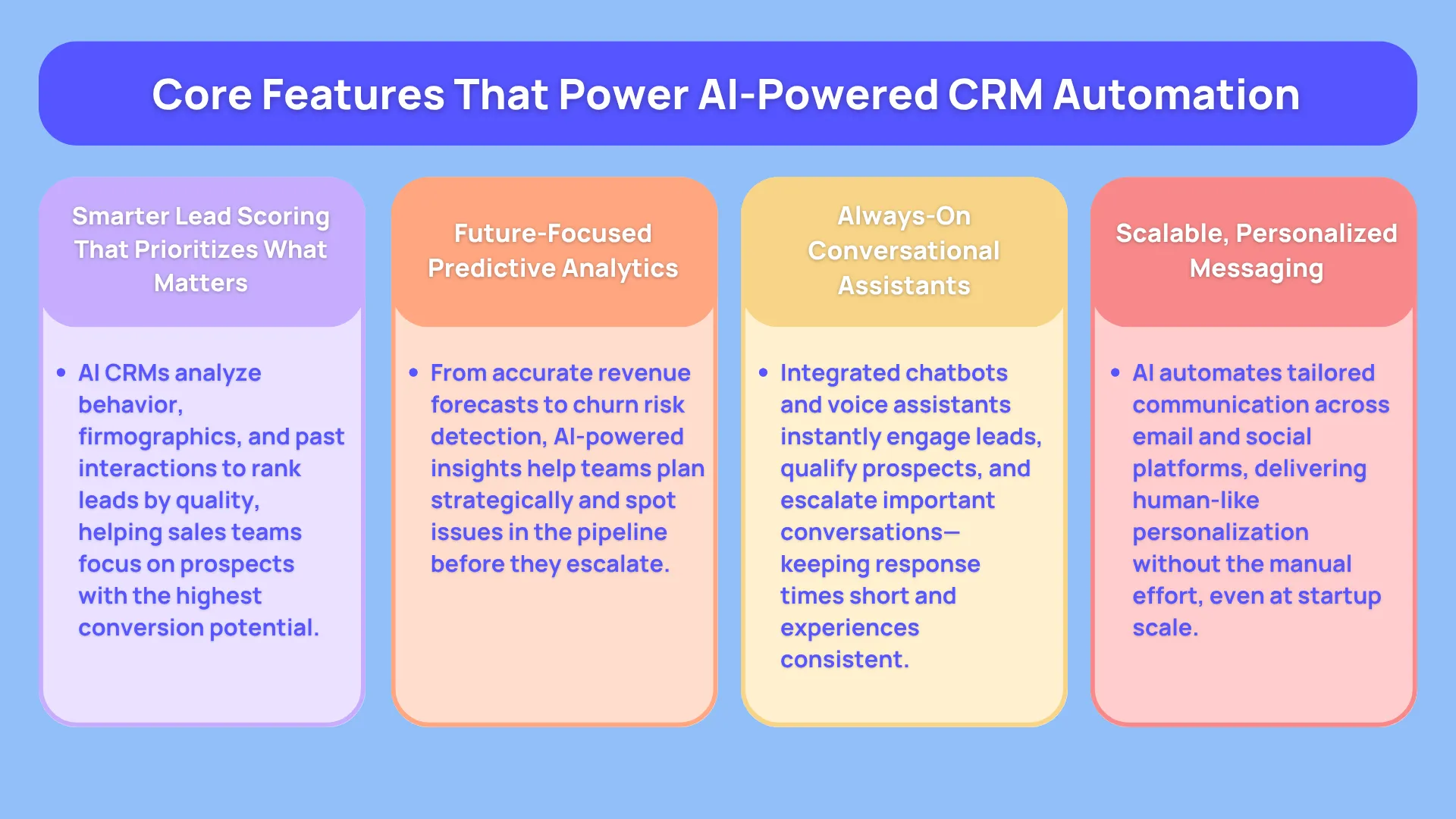
AI CRM platforms don’t just organize data—they activate it.
To understand how these systems supercharge sales efforts, it helps to examine the key technologies involved. These features work together to streamline the journey from initial interest to loyal customer.
Given that you have a robust system with out of the box solutions available, the features could be numerous.
Some of them are listed below as a general guideline. We believe that if you are well aware of your business requirements and the type of software that you’re eventually looking to sign up for, will make the difference.
1. Intelligent Lead Scoring and Qualification
Every sales team has limited bandwidth, and not all leads are created equal. Intelligent lead scoring uses behavioral data, firmographics, and past interactions to assign a value to each prospect. This tells your team who to contact first and why.
- Behavioral signals such as email opens, content views, and demo requests help identify buyer intent.
- Demographics and firmographics highlight decision-makers and companies with a strong fit.
- Custom scoring models ensure that qualification criteria match your unique sales funnel.
Startups using automated lead qualification report shorter sales cycles and higher conversion rates because they avoid wasting time on low-quality prospects.
2. Predictive Sales Analytics
Forecasting has always been a challenge, especially for new companies. AI CRM automation tackles this with predictive models that analyze past deals, buyer behaviors, and market signals to generate forward-looking insights.
- Revenue forecasting becomes more accurate, helping leaders plan ahead.
- Pipeline analysis helps detect deals likely to stall or close.
- Churn prediction allows sales and customer success teams to proactively intervene.
The ability to anticipate what comes next gives startups a significant strategic advantage, especially in competitive or volatile markets.
3. Conversational AI Assistants
AI-powered CRM automation often includes smart virtual assistants capable of handling initial customer contact. Whether it’s through chat, email, or voice, these assistants engage leads instantly.
- Chatbots answer FAQs, qualify leads, and schedule demos.
- Voice assistants can help reps prepare for meetings or summarize previous interactions.
- Escalation paths ensure that hot leads get passed to humans at the right moment.
Instead of letting leads wait hours for a reply, conversational AI ensures engagement is fast, consistent, and always on-brand.
4. Personalized Content and Communication
In a broader sense of things, those days are long behind us when sending the same email to everyone in your database used to be a painstakingly long process. CRM automation AI sales reps can customize every message based on behavior, stage in the funnel, and interests.
- Dynamic email content adapts to recipient preferences.
- AI content assistants help sales reps craft better subject lines, CTAs, and follow-ups.
- Social media responses can be automatically personalized for each interaction.
The result is communication that feels human, even though it’s powered by machines. Personalization at scale means startups can act like enterprise-level teams without the overhead.
How CRM Automation AI Sales Reps Elevate Sales Execution
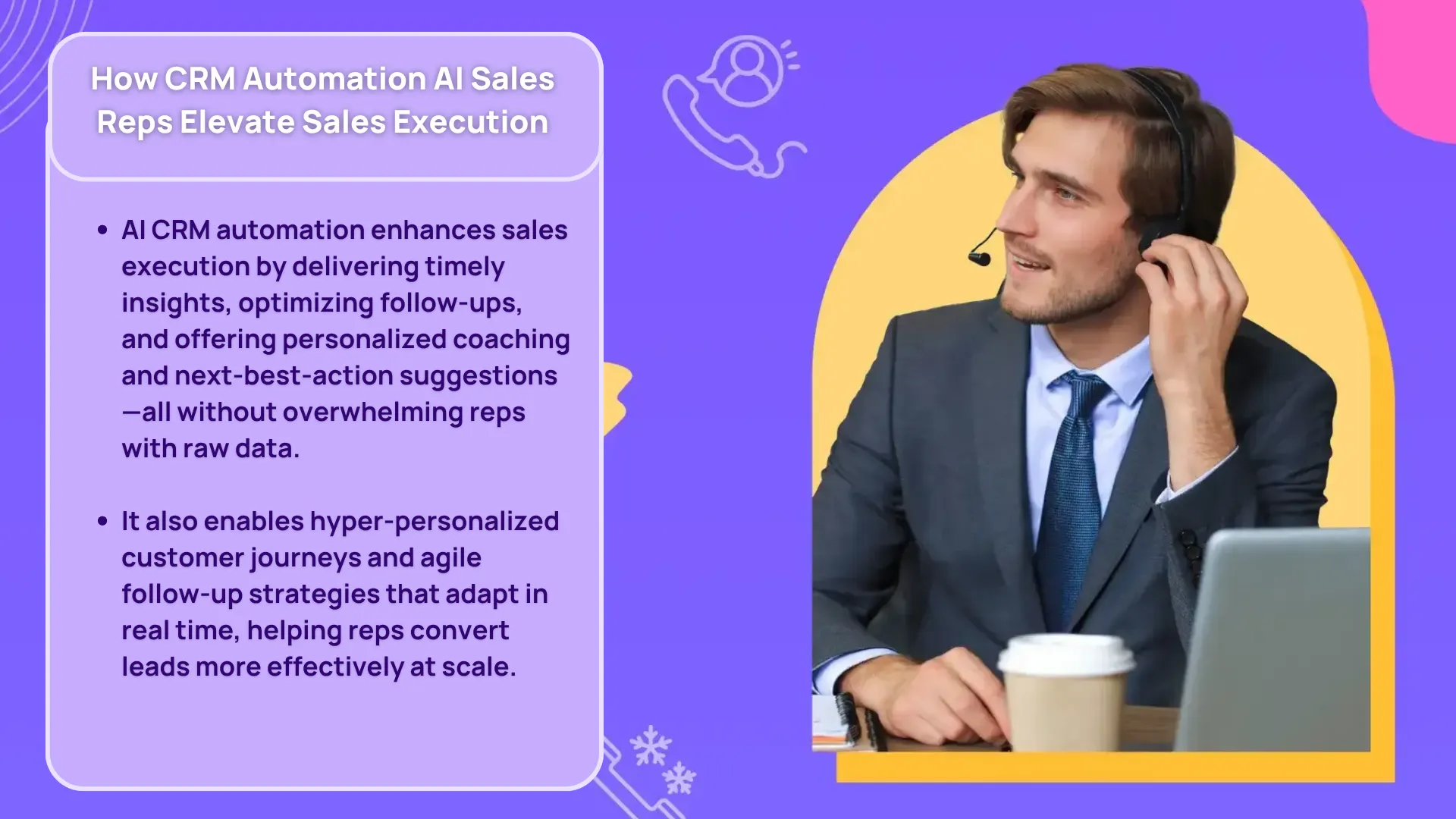
AI CRM automation doesn’t just support your sales reps—it enhances their capabilities. Think of AI-driven systems as your team’s most reliable partner: available 24/7, constantly learning, and always suggesting improvements.
Here’s what that looks like in practice:
- Follow-up optimization: AI systems track how leads engage and suggest timing, tone, and content for the next touchpoint.
- Sales coaching at scale: AI observes sales calls and emails, offering feedback that helps reps improve over time.
- Next-best action recommendations: AI systems highlight which leads to pursue, what message to send, and when.
Rather than overwhelming reps with data, CRM automation AI sales reps surface only the most relevant insights—removing noise, increasing focus, and empowering smarter decisions.
Creating Personalized Customer Journeys at Scale
Customers want to feel seen, heard, and understood. AI-powered CRM automation enables businesses to do just that—across thousands of prospects and accounts.
Every touchpoint becomes tailored:
- Email nurturing sequences that adapt based on how the recipient interacts with previous emails.
- Custom offers triggered based on a lead’s behavior or firmographic data.
- Real-time chat support that changes tone or information depending on user type or journey stage.
Salesforce and HubSpot, two leaders in this space, offer integrated AI features that help startups run personalized campaigns with minimal manual input. For example, HubSpot's adaptive email personalization has increased open rates by over 20% in recent campaigns.
Optimizing Follow-Up Sequences with AI
One of the most underutilized areas of CRM automation is follow-up strategy. AI CRM systems analyze lead behavior and schedule automated responses that feel timely and relevant. They can also shift strategy in real-time if a prospect’s behavior changes.
For instance:
- If a lead visits your pricing page multiple times, the system may suggest sending a discount offer.
- If a lead clicks but doesn’t respond to emails, the system may schedule a phone call or social message instead.
- If engagement spikes after a webinar, AI can help craft a perfectly timed follow-up tailored to that specific event.
This level of agility helps sales reps stay on top of every opportunity without micromanaging their calendar.
Choosing the Best AI-Powered CRM Automation Platform for Your Startup
With so many platforms offering automation features, picking the right one for your business is critical. Your ideal solution should match your growth goals and sales strategy without adding unnecessary complexity.
What to look for:
- Scalability: Can the platform grow as your team and customer base expand?
- Customization: Can you tailor scoring models, workflows, and dashboards to fit your sales motion?
- User Experience: Is it intuitive enough for fast onboarding and adoption?
- Native Integrations: Does it work seamlessly with your existing stack (email, marketing tools, etc.)?
- Support and Training: Will your team have access to ongoing learning resources and real-time help?
Popular platforms like HubSpot and Salesforce have strong automation capabilities, but startups should also evaluate emerging tools that offer lightweight solutions with lower costs and faster setup.
Key Metrics to Evaluate AI CRM Automation Impact
Adopting AI CRM automation is only the first step. To ensure it’s delivering ROI, you need to track the right performance indicators. Here are the most telling metrics that highlight success:
1. Response Rate Increases
This shows how well your outreach is engaging prospects. Benchmarks suggest that AI-powered campaigns average a 25% response rate, compared to traditional approaches that hover around 10%.
2. Conversion Rate Growth
Keep an eye on how many leads become paying customers. Startups using CRM automation AI sales reps report conversion jumps of 15% or more, thanks to better lead targeting and smarter follow-ups.
3. Sales Cycle Reduction
Automated scoring and AI-recommended actions can shrink your sales cycle. Some startups have cut deal times by as much as 20%, which means faster revenue recognition.
4. Forecast Accuracy
AI's predictive models can deliver sharper forecasts, which is especially valuable for early-stage companies trying to secure funding or make strategic bets.
5. Customer Retention Rates
Personalized experiences lead to happier customers. AI CRM automation helps ensure you’re sending relevant content, touching base at the right time, and spotting churn risks early.
Getting Started with AI CRM Automation
If you're new to AI CRM automation, the key is to start simple. Identify areas where your team is losing time or missing opportunities—such as lead qualification, email follow-ups, or pipeline forecasting—and introduce automation there first.
Once the foundation is in place, expand into areas like predictive analytics and personalized content generation.
Don’t wait until your team is overwhelmed or your pipeline is unpredictable. The earlier you integrate AI-powered CRM automation into your stack, the faster you can create predictable, scalable growth.
Putting It Together
For startups that need to move fast, act smart, and maximize every lead, this technology is no longer optional. CRM automation AI sales reps offer a way to scale high-touch sales motions without hiring a massive team.
The ability to connect, qualify, nurture, and convert—all with precision and personalization gives organizations more control of data and how to direct it towards something for better and long lasting results.
Frequently Asked Questions

What makes AI CRM automation different from traditional CRM tools?
Traditional CRM systems typically act as centralized databases, requiring manual updates and offering limited support in actual sales execution.
AI CRM automation, on the other hand, transforms these systems into proactive sales peartners. They automatically score leads, predict behavior, trigger follow-up actions, and personalize outreach—all without human intervention.
As a result, we’d say that this type of shift not only reduces administrative overhead but also improves how quickly and effectively sales teams can engage with prospects.
Can startups afford to adopt AI-powered CRM automation?
Yes, and in many cases, startups benefit the most from adopting AI-powered CRM automation early.
In that order, modern AI CRM platforms offer scalable pricing models designed for growing businesses, and the return on investment is often realized quickly through shorter sales cycles and better lead conversion.
For startups trying to do more with lean teams, the efficiency boost and intelligent decision support make these tools incredibly cost-effective.
How does CRM automation help AI sales reps work more efficiently?
In terms of outbound sales platforms, this type of technology helps mostly SDRs to prioritize high-value tasks by handling the repetitive, manual work that usually slows down a sales process.
The deliverables and the amount of work that you could do easily range from triggering personalized email sequences to suggesting the next best action for a lead.
In essence, the technology, and the platform it’s embedded into, provides reps with real-time guidance and context. This means less time spent guessing what to do next, and more time focused on meaningful conversations that move deals forward.



